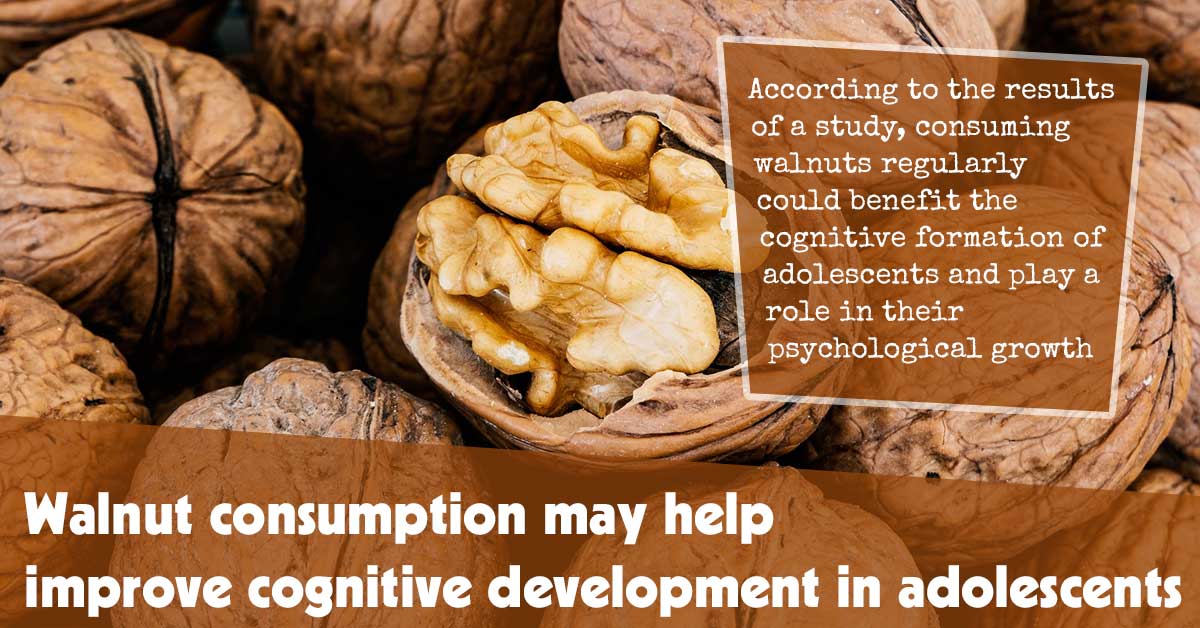According to the results of a study, consuming walnuts regularly could benefit the cognitive formation of adolescents and play a role in their psychological growth.1✅ JOURNAL REFERENCE
DOI: 10.1016/j.eclinm.2023.101954
Although there has been previous research on how nut consumption affects health, the impact of consuming nuts at such a crucial stage of cognitive development hadn’t been studied.
Walnuts are abundant in alpha-linolenic fatty acid, a kind of omega-3 that plays a significant part in brain development, particularly in adolescence. According to the researchers, adolescence is a time when hormonal transformation takes place, which is then responsible for stimulating the frontal lobe’s synaptic growth. This brain area enables neuropsychological maturation such as more advanced cognitive and emotional functions. Neurons nourished with this kind of fatty acids can grow and develop new, stronger synapses.
For the study, 700 students between the ages of 11 and 16 years volunteered to participate. They were randomly split into 2 groups: the control group that did not receive any walnuts, and the experimental group that was given 30-gram sachets of walnuts every day for 6 months.
The researchers observed that adolescents who consumed walnuts for a minimum of 100 days experienced an increase in attention functions, and individuals who had some ADHD symptoms experienced significant behavior improvements such as paying more attention to the teacher in class and displaying less hyperactivity.
There was also an increase in functions associated with fluid intelligence, which is less influenced by learning. This was evaluated with increasingly complex tests, which included having participants determine the pattern that letters in a row followed.
Overall, no differences of significance were observed in the intervention group relative to the control group. Positive results are however seen if the adherence factor is taken into account, considering that individuals who followed the guidelines the most closely with regards to the recommended walnut dose and the number of consumption days did show neuropsychological function improvements.
The study therefore shows that adhering to a healthy diet is just as important as sticking to these habits in the long term for adolescents to develop optimally on a psychological and cognitive level. If adolescents would pay attention to these recommendations and consume a handful of walnuts every day, or at a minimum 3 times a week, they would experience several significant cognitive ability improvements, and it would help them confront the difficulties of adolescence.
Adolescence is a time of complex behaviors and profound brain development that demands a significant amount of nutrients and energy.



